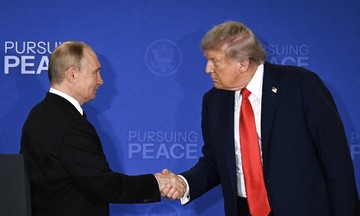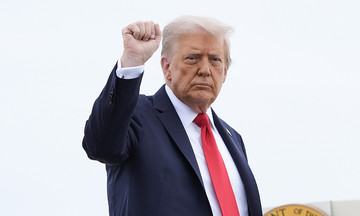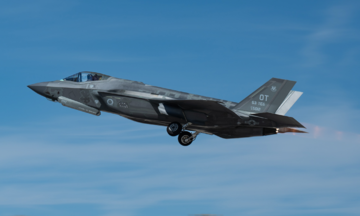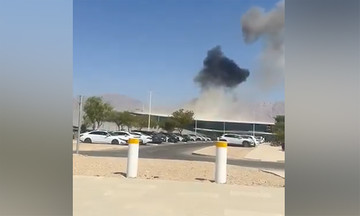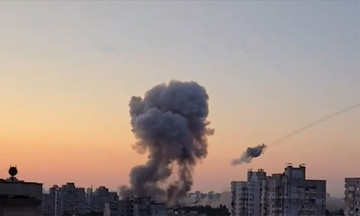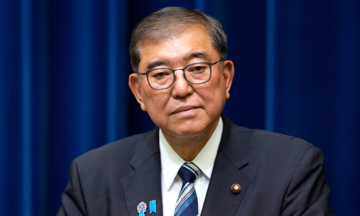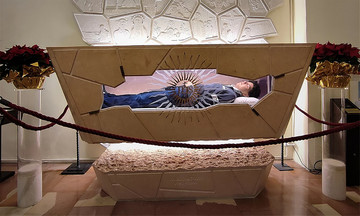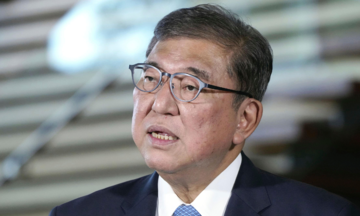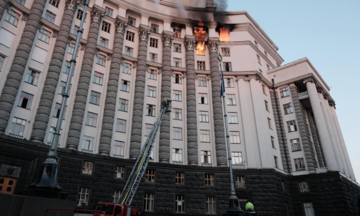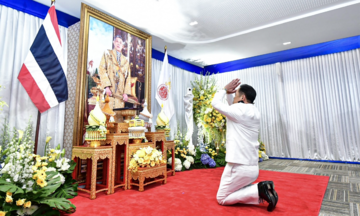North Korean leader Kim Jong-un visited Beijing this week to attend China's large military parade commemorating the 80th anniversary of the victory over fascism. He strode confidently with a bright smile at one of the largest multilateral events since he assumed leadership of North Korea 14 years ago.
His image in Beijing is precisely what North Korea has been striving to project: a key, even pivotal, head of state in global affairs, comfortable alongside other major powers in Eurasia.
AP analyst Foster Klug commented, "This event is a significant turning point in using international diplomacy to advance the goals of a nation largely isolated from the world,".
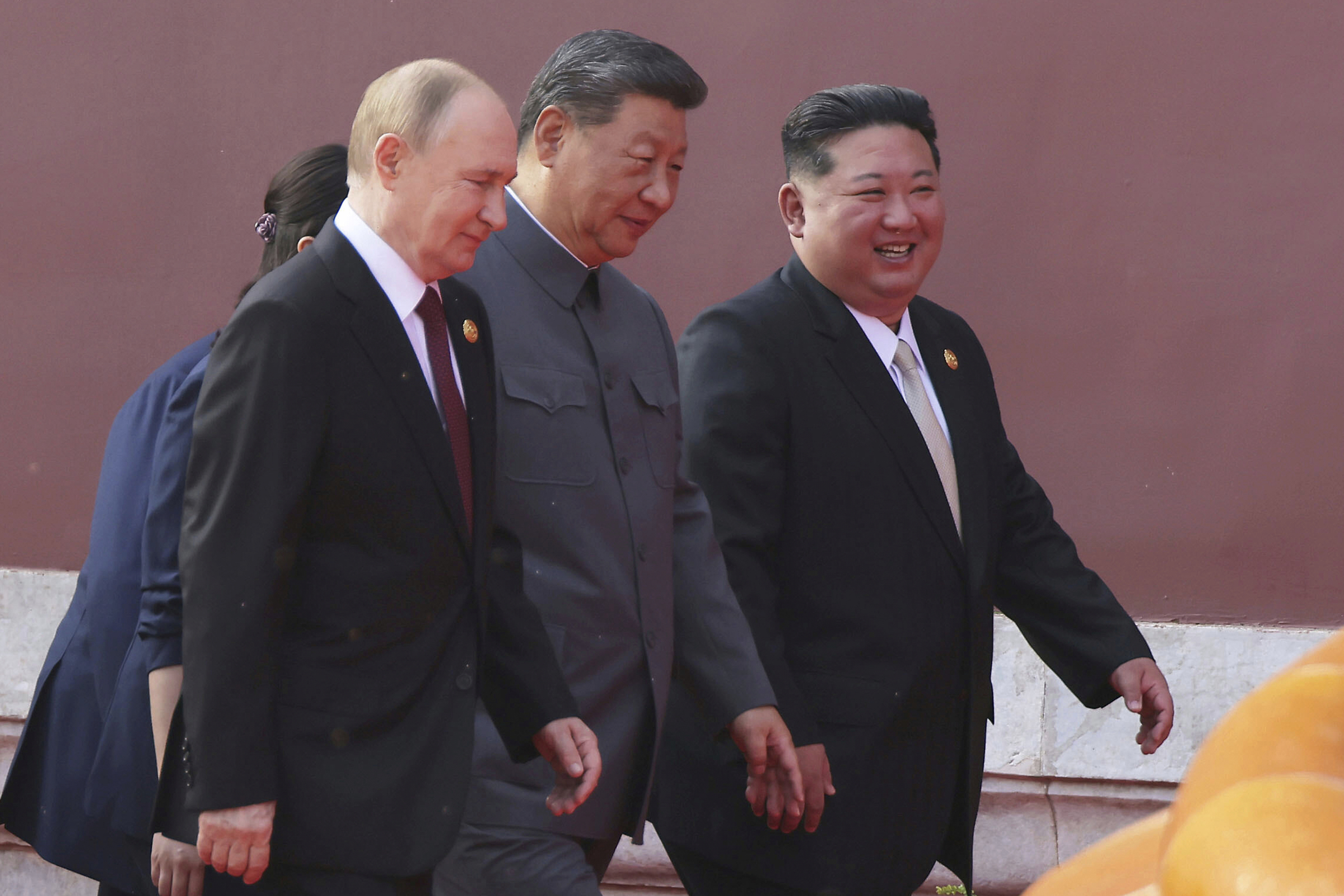 |
From left: Russian President Vladimir Putin, Chinese President Xi Jinping, and North Korean leader Kim Jong-un at Tiananmen Square, Beijing on 3/9. Photo: AP |
From left: Russian President Vladimir Putin, Chinese President Xi Jinping, and North Korean leader Kim Jong-un at Tiananmen Square, Beijing on 3/9. Photo: AP
Kim skillfully managed his relationships with his two biggest allies, China and Russia. The North Korean leader was seen smiling and conversing with Chinese President Xi Jinping and Russian President Vladimir Putin, pledging long-term support for Moscow in the war in Ukraine and strengthening ties with Beijing. He even brought his daughter, a potential successor, along on the trip.
"He has become a seasoned leader," observed Leif-Eric Easley, a professor of international studies at Ewha Womans University in Seoul.
Kim Jong-un previously held five summit meetings with Xi. Both governments stated that denuclearization of the Korean Peninsula was discussed in each meeting. However, their bilateral talks in Beijing on 4/9 marked a difference. Neither government's announcement of the meeting's outcome mentioned denuclearization.
Observers believe this signals a diplomatic win for Kim. The North Korean leader has long maintained that Pyongyang doesn't need the world's recognition as a nuclear power. North Korea has conducted six nuclear tests since 2006.
"China won't officially recognize North Korea as a nuclear power, but the latest meeting suggests they're no longer as insistent on Pyongyang's denuclearization," said Lee Byong-chul, an analyst at the Institute for Far Eastern Studies in Seoul. "This is a big step in Kim's strategy to have the country's nuclear arsenal accepted as a fait accompli,".
Analysts say Kim's recent trip to Beijing highlighted North Korea's increasing geopolitical value, helping persuade China and Russia to view the East Asian nation as a nuclear power.
Xi invited Kim to stand beside him and Putin on the Tiananmen Square rostrum during the 3/9 military parade. The three leaders walked to the podium and shook hands with World War II veterans.
"There was special attention given to Kim," noted analyst Klug.
Kim has supported Russia in the war in Ukraine by sending troops and weapons to fight in the Kursk region. During their meeting in Beijing on 2/9, Putin thanked Kim for this support.
With the Moscow-Pyongyang relationship tightening, Xi appeared to draw Kim back into his orbit by inviting him to the parade.
"It's a remarkable diplomatic victory. North Korea, once unanimously sanctioned by the UN Security Council for its nuclear and missile programs, is now welcomed by two permanent members of that body," said Professor Easley.
Russia and China have used their veto power in the Security Council in recent years to block US efforts to impose new sanctions on North Korea, allowing Pyongyang to test nuclear-capable ballistic missiles without penalty. In 2024, Russian Foreign Minister Sergei Lavrov declared that Moscow considered North Korea's "denuclearization" a "closed issue,".
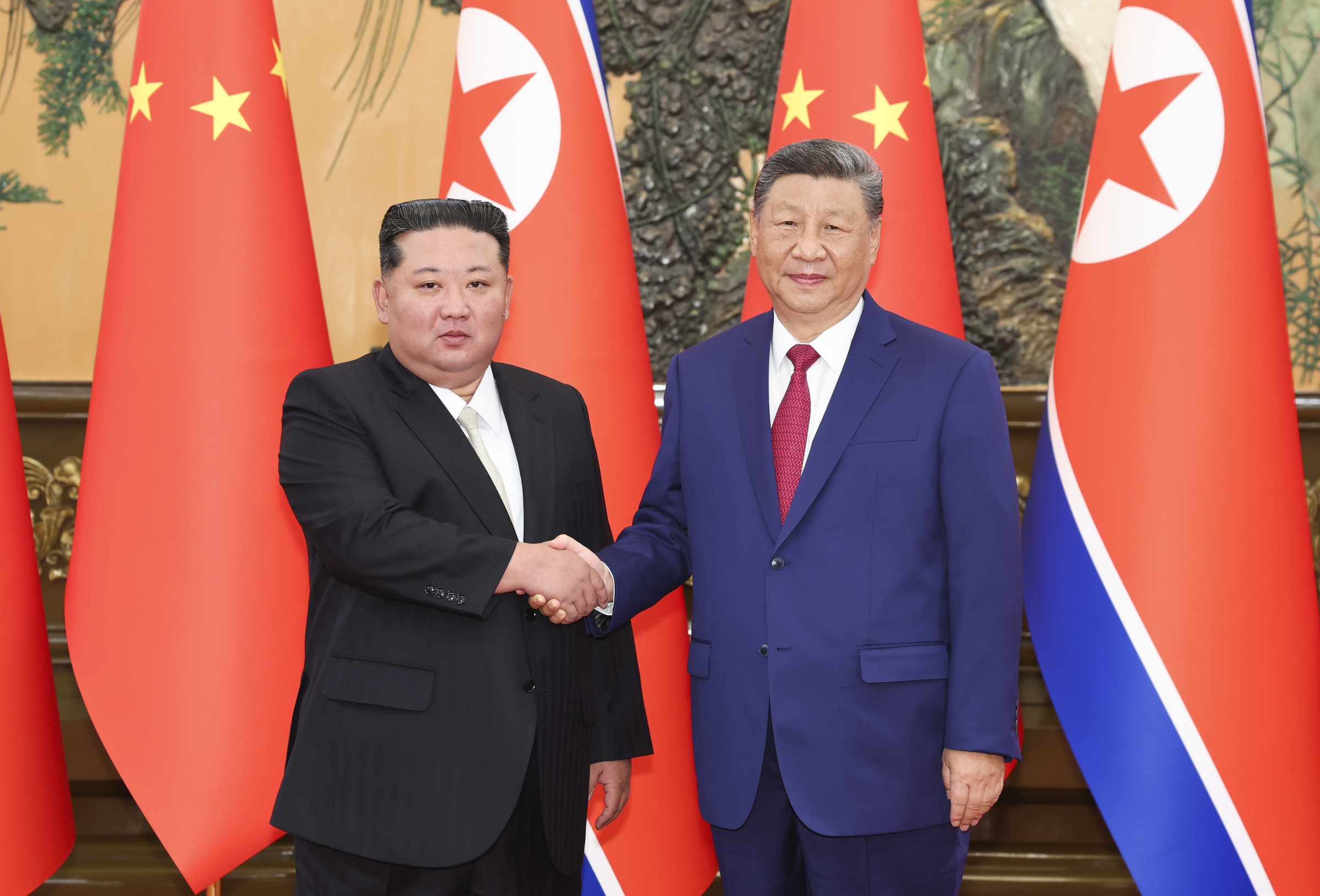 |
North Korean leader Kim Jong-un (left) and Chinese President Xi Jinping in Beijing on 4/9. Photo: AP |
North Korean leader Kim Jong-un (left) and Chinese President Xi Jinping in Beijing on 4/9. Photo: AP
Rodong Sinmun, the official newspaper of the Workers' Party of Korea, devoted the first half of its six-page 4/9 edition to Kim's Beijing visit. According to North Korean and Chinese media, during their 4/9 meeting, Kim and Xi pledged to strengthen relations "regardless of the changing international situation,".
Kim also sought to enhance "economic and trade cooperation with China," according to Xinhua. Despite growing ties with Russia, North Korea remains almost entirely dependent on China for foreign trade.
Experts say that increasingly close political, economic, and military ties with Russia and China significantly enhance North Korea's standing. This means US President Donald Trump will face greater difficulty bringing Kim to the negotiating table on denuclearization than before.
"The threshold for a US-North Korea summit is now higher," said Yang Moo-jin, former president of the University of North Korean Studies in Seoul. Trump held two unsuccessful summits with Kim during his first term to discuss denuclearization of the Korean Peninsula.
The diplomatic triumph in Beijing gives Kim more leverage in any future negotiations, according to experts. "He now steps onto the international stage with the confidence of a leader of a strategic power," said Koh Yu-hwan, former president of Korea's National Unification Institute.
Thanh Tam (According to AP, ABC News)



